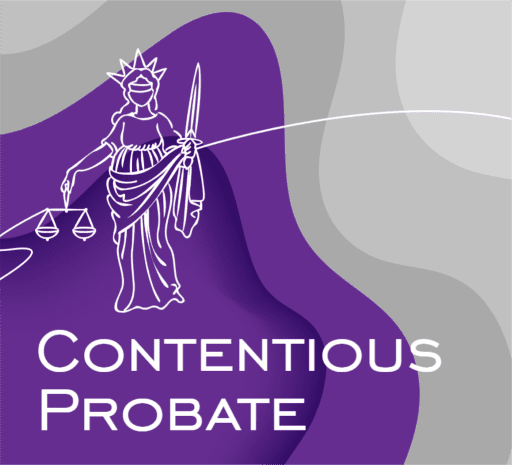
Now, look—when someone passes away, their Will is supposed to be the final word. It should reflect their wishes, their love for their family, and the legacy they leave behind. But we all know life isn’t always that simple. Inheritance disputes happen, and when they do, people need clear answers and compassionate legal guidance.
So today, let’s talk about something a lot of folks are asking:
Can you contest a Will in the UK?
And perhaps more importantly – should you?
What Happens When a Will Is Contested?
Contesting a Will isn’t about causing drama. It’s about seeking fairness when something doesn’t sit right. Maybe your parent left everything to a distant relative. Or perhaps you suspect the Will was written under duress, or the person lacked capacity. In the UK, there are legal grounds to dispute a Will, and if those grounds are valid—you can take action.
When a Will is contested:
- Probate may be delayed
- A caveat can be entered to stop the Grant of Probate
- Parties may engage in mediation or end up in court
- If successful, the Will can be declared invalid and replaced by an earlier Will or the rules of intestacy
Valid Reasons to Contest a Will in the UK
You can challenge a Will if:
- It’s a fraudulent Will – forged signatures, misleading information, or deceit
- It was written under duress or undue influence – the person was pressured into making decisions they didn’t truly want
- The testator lacked mental capacity – perhaps due to illness or cognitive decline
- The Will wasn’t executed properly – UK law has strict requirements for signing and witnessing
- The Will fails to make reasonable provision for someone financially dependent, under the Inheritance (Provision for Family and Dependants) Act 1975
Inheritance Disputes Between Siblings
One of the most common and emotionally charged types of will disputes is between siblings. Inheritance disputes between siblings can arise for many reasons—perceived unfairness, unequal distribution of assets, or suspicions that one sibling influenced the Will.
These disputes often have roots in long-standing family dynamics. Whether a sibling was left out of the Will entirely or one child received a disproportionate share of the estate, these situations require careful, strategic handling. Mediation is often a powerful tool, but court intervention may be necessary if no resolution can be reached.
Can You Remove an Executor of a Will?
Yes, you can. Executors have a legal obligation to act in the best interest of the estate and its beneficiaries. If they’re acting negligently, dishonestly, or are simply unfit to perform their duties, beneficiaries can apply to the court to have the executor removed and replaced.
Contesting a Will in the UK: Cost and Considerations
Contesting a Will in the UK can be expensive, and it’s important to consider both legal and emotional costs. Some disputes settle early with minimal costs, while others proceed to lengthy litigation.
Typical cost ranges:
- Early negotiation or mediation: £2,000 – £5,000
- Contested probate litigation: £15,000 – £100,000+, depending on complexity.
Contesting a Will After Probate – Is It Too Late?
You can contest a Will after probate, but there are time limits.
- Inheritance Act claims: Must be brought within six months of the Grant of Probate
- Claims based on fraud or forgery: No formal time limit, but prompt action is advised
- Duress or undue influence: Best contested before the estate is distributed
Once distribution begins, recovering assets can be more difficult, but not impossible.
What If Someone Destroyed the Will?
If a valid Will was intentionally destroyed and no copy exists, the estate might be treated as intestate – meaning it will be distributed according to the standard rules of inheritance rather than the deceased’s true wishes. This can result in outcomes that the deceased never intended, such as estranged relatives receiving large portions of the estate or partners being left with nothing.
However, all is not lost. If you have a copy of the Will or even recall which solicitor or law firm drafted it, you may be able to reconstruct and submit that copy for probate—but you will need strong evidence. This includes:
- Proof that the Will existed and was validly executed – Search online using government website or National Will Register
- Evidence that the original was not destroyed by the testator with the intention to revoke it
- Testimony from witnesses, such as the people who signed it
- Confirmation from the law firm that drafted or stored the original Will
- Copies of communications, such as emails or letters referencing the Will
If you suspect someone destroyed the Will maliciously, get in touch with us. At Aristone Solicitors, we can help you:
- Trace the solicitors or Will-writers who may have drafted the Will
- Contact potential witnesses who can testify to its existence and contents
- Build the necessary legal arguments to admit a copy of the Will to probate
This is a highly technical area of law, but you don’t have to handle it on your own. We’re here to ensure that your loved one’s final wishes are honoured—even in the face of wrongdoing.
Contact us today to discuss your situation confidentially.
What Happens If a Will Is Changed?
A Will can legally be changed or rewritten at any time, provided the testator has mental capacity and follows proper procedures. However, if a Will was changed shortly before death, or when the person was isolated or unwell, that change may be challenged.
So yes – you can rewrite a Will. But if changes appear suspicious or unjust, they can and often are disputed.
How Do You Know If a Will Is Being Contested?
If you’re an executor or beneficiary, you’ll usually know a Will is being contested when:
- A caveat is filed with the Probate Registry
- You receive letters from a solicitor representing someone who intends to dispute the Will
- You are served with a court claim
Do not ignore these. Early legal advice is critical.
Conclusion: Contesting a Will Is About Justice, Not Revenge
We all want to believe that when someone we love passes away, their wishes will be honoured. But sometimes, a Will doesn’t reflect the truth—or worse, it was manipulated. Whether it’s about a Will written under duress, a fraudulent Will, or inheritance disputes between siblings, the goal is not to create division. It’s to find the truth and do what’s fair.
If you suspect wrongdoing, don’t stay silent. Get advice. Ask questions. You’re not being selfish—you’re seeking justice.
Need Help with a Will Dispute?
At Aristone Solicitors, we specialise in helping individuals and families across the UK resolve complex inheritance disputes, remove executors, and challenge suspicious or fraudulent Wills.
We have helped recover millions of pounds in inheritance disputes, ensuring that our clients receive what they are rightfully entitled to. Our team brings over 60 years of combined legal expertise, and we understand both the emotional and legal weight of these matters.
Our team is led by Patrick Smith, a seasoned probate specialist with over 40 years of experience across three continents. As a former barrister, Patrick brings a rare and valuable perspective—he knows precisely how to prepare for court and understands what judges expect should your case proceed to litigation. His insight allows us to resolve matters efficiently, but also gives our clients a significant advantage if a dispute becomes contentious.
Whether you’re contesting a Will written under duress, suspect a Will has been destroyed or forged, or are caught in an inheritance dispute between siblings, we’re here to help.
Contact us today for a confidential consultation. Let us protect your interests and bring clarity to your next steps.
Luton Office: +44 1582 383 888
London Office: +44 2034 393 888
St Albans Office: +44 1727 519 888
Or contact us using our online contact form and a member of our team will get back to you promptly.
IS PROBATE REQUIRED IN THE UK? COMPREHENSIVE ESSENTIALS
HOW TO REMOVE A PROFESSIONAL EXECUTOR: LEGAL STEPS & OPTIONS
HOW TO DISINHERIT SOMEONE IN A WILL: DISCOVER 4 COMPELLING REASONS WHY
WHEN CAN AN EXECUTOR BE REMOVED?
HOW TO REMOVE AN EXECUTOR IN CONTENTIOUS PROBATE | STEP-BY-STEP GUIDE 2025
LEFT OUT OF A WILL? THE INHERITANCE ACT 1975 CAN PROTECT YOU
IS IT POSSIBLE TO TAKE AN INHERITANCE BEFORE REACHING THE AGE OF 18?




